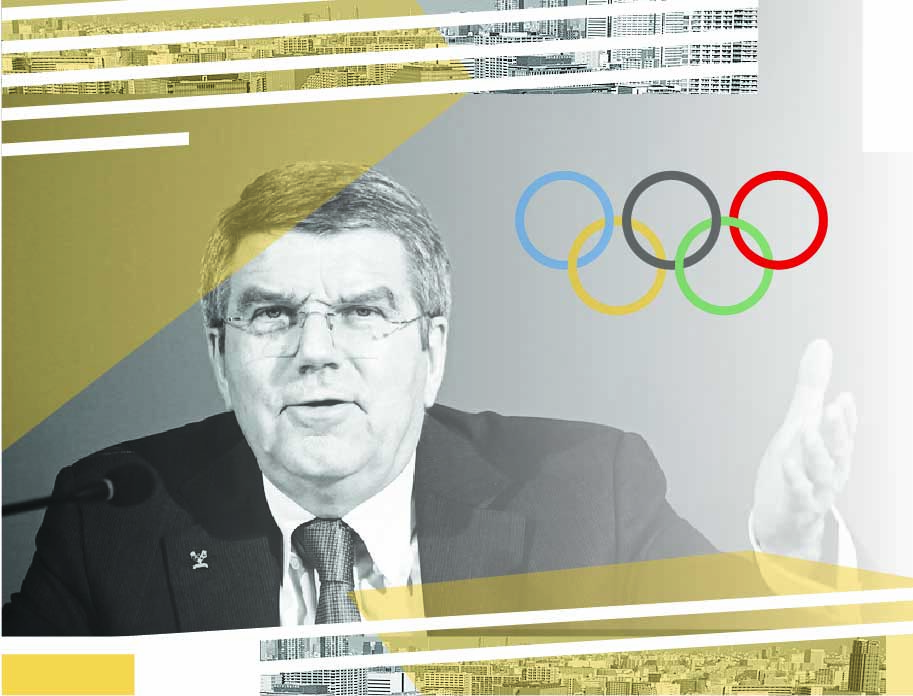
Dr William Douglas de Almeida
PhD from Escola de Educação Física e Esporte , University of São Paulo (USP), journalist, member of Olympic Studies Group/USP.
Website: https://www.researchgate.net/profile/William-Almeida-2

Dr Katia Rubio
PhD in Education from University of São Paulo (USP). Professor at Faculdade de Educação USP. Psychologist, journalist. Leader of Olympic Studies Group/USP.
Instagram: https://www.instagram.com/katia_rubio/?hl=pt

Section 2: Media Coverage & Representation
- Twitter conversations on Indian female athletes in Tokyo
- ”Unity in Diversity” – The varying media representations of female Olympic athletes
- The Olympic Channel: insights on its distinctive role in Tokyo 2020
- How do we truly interpret the Tokyo Olympic ratings?
- Between sexualization and de-sexualization: the representation of female athletes in Tokyo 2020
- Reshaping the Olympics media coverage through innovation
- An Olympic utopia: separating politics and sport. Primary notes after analyzing the opening ceremony media coverage of mainstream Spanish sport newspapers
- What place is this? Tokyo’s made-for-television Olympics
- The paradox of the parade of nations: A South Korean network’s coverage of the opening ceremony at the 2020 Tokyo Olympics
- Tokyo 2021: the TV Olympics
- Why we need to see the “ugly” in women’s sports
- “The gender-equal games” vs “The IOC is failing black women”: narratives of progress and failure of the 2020 Tokyo Olympics
- Ghana: Poor local organizing, and absence of football team dampens interest
- Megan Rapinoe: The scary Bear for many Americans?
- ‘A Games like no other’: The demise of FTA live Olympic sport?
- Temporality of emotionalizing athletes
- Fandom and digital media during the Tokyo 2020 Olympic Games: A Brazilian perspective using @TimeBrasil Twitter data
- Media wins medal for coverage of athletes as people, instead of entertainers
- Media frames and the ‘humanity’ of athletes
- Reporting at a distance. Stricter working conditions and demands on sports journalists during the Olympics
- New Olympic sports: the mediatization of action sports through the Olympic Games 2020 Tokyo
- Simone Biles, journalistic authority, and the ideology of sports news
- Representations of gender in the live broadcast of the Tokyo Olympics
- Americans on ideological left more engaged in Summer Olympics
- Nigeria: Olympic Games a mystery for rural dwellers in Lagos
- National hierarchy in Israeli Olympic discourses
- Equestrian sports in media through hundred Olympic years. A roundtrip from focus to shade and back again?
- Reshaping the superhuman to the super ordinary: The Tokyo Paralympics in Australian broadcasting media
- Is the Paralympic Games a second-class event?
- The fleeting nature of an Olympic meme: Virality and IOC TV rights
- Is the Paralympic Games a second-class event?
- How digital content creators are shaping meanings about world class para-athletes
- How digital content creators are shaping meanings about world class para-athletes
- The male and female sports journalists divide on the Twittersphere during Tokyo 2020
- Super heroes among us: A brief discussion of using the superhero genre to promote Paralympic Games and athletes
- “Everything seemed very complicated”: Journalist experiences of covering the Tokyo 2020 Paralympic Games
- Representing high performance: Brazilian sports journalists and mass communication professionals discuss their philosophies on producing progressive Paralympic coverage
- Representations of gender in media coverage of the Tokyo 2020 Paralympic Games
The COVID-19 pandemic altered, for the first time in history, the Olympic calendar, extending the four-year cycle to five. One of the factors that weighed most against the cancellation of the Games was precisely the investment made by television stations worldwide. These stations disbursed billions of dollars for the broadcasting rights. With the pandemic increasing, there was apprehension until the final moments, forcing broadcasters to prepare new plans.
In Brazil, Grupo Globo purchased open TV broadcasting rights. Despite not having paid for the exclusivity, the broadcaster’s proposal was the only one. There was competition, however, in cable TV with SporTV channels, linked to Grupo Globo, with four different signals and Bandsports, which maintained one channel. In addition to broadcasts on open and closed TV, the Globo group made available 40 streaming signals, without narration, for access by the Brazilian public. This analysis restricts itself to broadcasters that had broadcasting rights to the event.
With the need to reduce costs and logistical difficulties, one of the alternatives adopted was to increase the volume of off-tube transmissions, thus reducing the number of professionals in Japan. However, in one instance, the stations showed behind-the-scenes moments in which narrators appeared on video.
There was also a preference for employing, as commentators, former athletes or athletes who are not participating at the Games. The discussion about the roles played by journalists and athletes is intense in journalism schools across Brazil. It is undeniable that athletes, by experiencing the sport and often having personal contact with the competitors, have access to details difficult for journalists to approach. On the other hand, the presence of these professionals only works alongside good communicators, and the narrators play a crucial role in translating technical terms and bringing the language of specialists close to the public. The evidence is seen in sports, like skateboarding, that are popular among the Brazilian public but are not frequently broadcast in the country. However, the presence of former athletes often leads to controversial discourses on refereeing decisions and nationalism. This is evident in sports such as surfing, skateboarding, boxing, and judo. Although relevant, the insistence of some athletes and narrators in blaming judges for the Brazilian defeats give some broadcasts an excessively nationalistic tone.
The narrators also had, on many occasions, to demonstrate eclecticism by being challenged in the same broadcast to move through different modalities due to the downsizing of the teams and the holding of several simultaneous events in which the Brazilian public could be interested.
It should also be noted that the holding of an Olympic edition with a time zone of 12 hours between the host country and Brazil caused the competition to be shifted to night, and morning hours in Brazil. This change made it possible for open TV to maintain its usual programming with few changes. On cable TV, the big challenge was to keep the schedule during the day, which was done with reruns and debate programs. Overall, this brought benefits to coverage of the Tokyo Olympic Games in Brazil. The early evening, considered prime time for the audience, was filled with compelling debates. With a certain distance between the time the sporting events took place and the program, more than just commenting on the disputes, important issues were addressed, such as the mental health of the competitors. Sport psychology gained prominence mainly after the withdrawal of the American Simone Biles from some of the gymnastics events. The presence of athletes who defended causes related to the LGBTQIA+ community was also the subject of discussions, as well as some protests carried out by athletes.
It is valuable to point out that such themes (mental health, gender issues, and political protests) have always permeated the Olympic Games, not being a novelty in Tokyo 2020. For the Brazilian public, the big news may have been the “discovery” by the media communication that Olympic coverage can go far beyond medal disputes.

